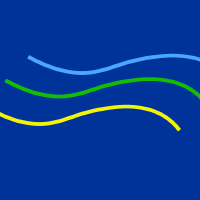Topic Editors




Remote Sensing and Geological Disasters
Topic Information
Dear Colleagues,
Geological disasters pose significant challenges to human engineering activities, such as the development of underground coal, shale gas, and geothermal resources, as well as the construction of tunnels, bridges, and hydropower stations. These activities often involve complex subsurface environments and stress conditions, necessitating a comprehensive exploration of the underlying principles to address geotechnical engineering problems. The integration of remote sensing technology has become vital for monitoring and analyzing geological disasters, offering real-time data and enhanced predictive capabilities.
By considering various influencing factors and geological characteristics, researchers can explore the complex behaviors in these applications. The advent of network information, big data, and intelligent technologies has provided new methods for studying and mitigating geological disasters. Remote sensing technology, in particular, has emerged as a critical tool for understanding geological hazards and improving the effectiveness of mitigation strategies.
We welcome submissions of cutting-edge reviews, scientific problem analyses, engineering case reports, and other papers related to remote sensing and geological disasters. Additionally, we encourage the submission of papers exploring innovative research methods and new engineering solutions in these fields. Topics of interest include, but are not limited to, the following:
- Remote sensing technology and application in rock mass landslides;
- Integration of geospatial data and engineering geology for disaster risk reduction;
- Advanced remote sensing methods for real-time geohazard assessment;
- Applications of remote sensing in hydrological studies and water resource management related to geological disasters;
- Remote sensing in the analysis of soil and land degradation;
- Thermo-hydro-mechanical coupled model for geological structures;
- Methods and theories for assessing geological stability;
- Slope engineering modeling and landslide disaster prediction methods;
- Application technology of intelligence in geological research;
- Rock structure description and mechanical constitutive equations;
- Failure laws, criteria, and mechanisms of geological materials under high in situ stress;
- Damage, crack initiation, and propagation mechanisms of geological materials under coupled multi-field conditions;
- Mechanical properties of soft and hard geological materials and their mechanisms of deformation. This Topic aims to bridge the gap between remote sensing and geological disaster mitigation, promoting interdisciplinary research and innovative solutions. We look forward to your valuable contributions to this exciting and impactful field.
Dr. Gan Feng
Prof. Dr. Qiao Lyu
Prof. Dr. Yunfeng Ge
Prof. Dr. Guoqing Li
Topic Editors
Keywords
- remote sensing technology
- smart geotechnical engineering
- rock mechanics stability
- geological hazards
- geographic information system (GIS)
Participating Journals
| Journal Name | Impact Factor | CiteScore | Launched Year | First Decision (median) | APC | |
|---|---|---|---|---|---|---|

Applied Sciences
|
2.5 | 5.5 | 2011 | 19.8 Days | CHF 2400 | Submit |

GeoHazards
|
1.6 | 2.2 | 2020 | 17.2 Days | CHF 1400 | Submit |

Geosciences
|
2.1 | 5.1 | 2011 | 23.4 Days | CHF 1800 | Submit |

Land
|
3.2 | 5.9 | 2012 | 16 Days | CHF 2600 | Submit |

Remote Sensing
|
4.1 | 8.6 | 2009 | 24.9 Days | CHF 2700 | Submit |

Preprints.org is a multidisciplinary platform offering a preprint service designed to facilitate the early sharing of your research. It supports and empowers your research journey from the very beginning.
MDPI Topics is collaborating with Preprints.org and has established a direct connection between MDPI journals and the platform. Authors are encouraged to take advantage of this opportunity by posting their preprints at Preprints.org prior to publication:
- Share your research immediately: disseminate your ideas prior to publication and establish priority for your work.
- Safeguard your intellectual contribution: Protect your ideas with a time-stamped preprint that serves as proof of your research timeline.
- Boost visibility and impact: Increase the reach and influence of your research by making it accessible to a global audience.
- Gain early feedback: Receive valuable input and insights from peers before submitting to a journal.
- Ensure broad indexing: Web of Science (Preprint Citation Index), Google Scholar, Crossref, SHARE, PrePubMed, Scilit and Europe PMC.

